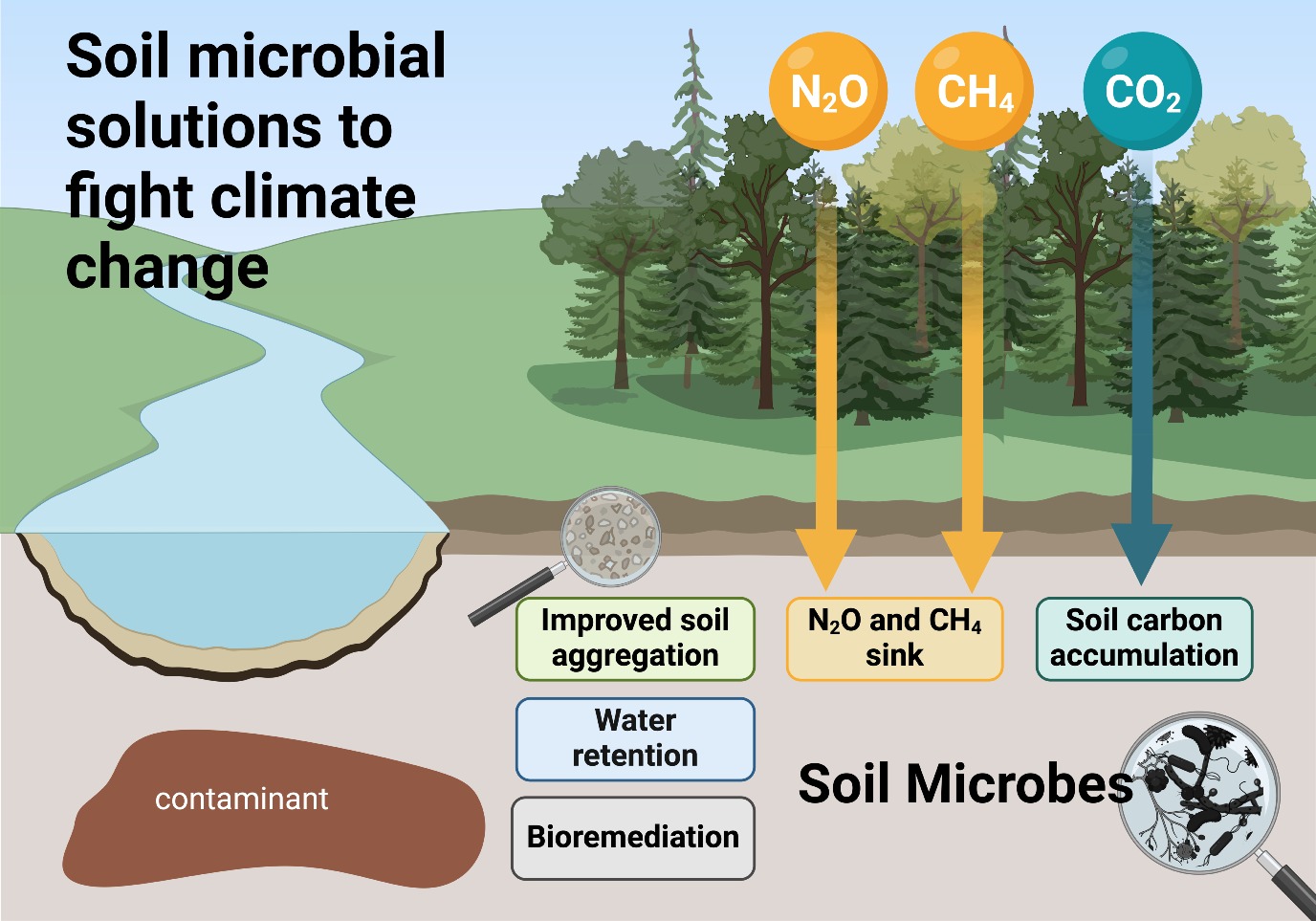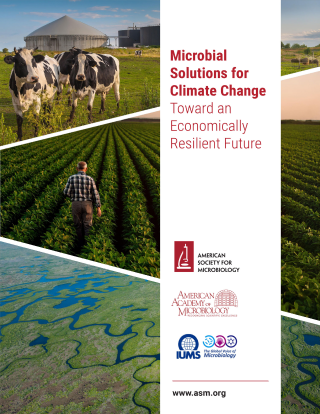Climate change: Microbes to the rescue!
Microorganisms can help fight climate change in several ways. This is the message of a report recently published by the International Union for Microbiological Societies (IUMS) and the American Society for Microbiology (ASM). Researchers at the RUG drew the same conclusion late last year, and are already working on converting carbon dioxide into useful products using bacteria.
FSE Science Newsroom | René Fransen
The report highlights three microbe-based innovations that can help humanity sustainably mitigate climate change and adapt to it. Firstly, microbes can be used to create a non-fossil carbon economy, for example, by producing chemical building blocks from carbon dioxide. Secondly, microbes can provide food security and ecosystem stability. And finally, they can also mitigate emissions of methane, a potent greenhouse gas.
A global, science-based climate task force

The report highlights three microbe-based innovations that can help humanity sustainably mitigate climate change, and adapt to it. Firstly, microbes can be used to create a non-fossil carbon economy, for example by producing chemical building blocks from carbon dioxide. Secondly, microbes can provide food security and ecosystem stability. And finally, they can also mitigate emissions of methane, a potent greenhouse gas.

The editorial emphasizes the crucial but often overlooked role of microorganisms in climate regulation. To address this, the authors propose establishing a global, science-based climate task force in which microbial ecologist representatives from scientific societies and institutions contribute to the development and implementation of microbiological solutions based on ecological knowledge.
A summary of the editorial can be found on the Faculty of Science and Engineering news page (scroll down to the second item).
Furthermore, you can find out how two scientists from the University of Groningen explain how they were able to convert carbon dioxide into useful products in 2023: Soil bacteria produce proteins and pharmaceuticals from carbon dioxide and Flying on carbon dioxide: Jingxiu Xie combines catalysis and chemical engineering to produce kerosene.
| Last modified: | 28 March 2025 2.25 p.m. |
More news
-
03 April 2025
IMChip and MimeCure in top 10 of the national Academic Startup Competition
Prof. Tamalika Banerjee’s startup IMChip and Prof. Erik Frijlink and Dr. Luke van der Koog’s startup MimeCure have made it into the top 10 of the national Academic Startup Competition.
-
01 April 2025
NSC’s electoral reform plan may have unwanted consequences
The new voting system, proposed by minister Uitermark, could jeopardize the fundamental principle of proportional representation, says Davide Grossi, Professor of Collective Decision Making and Computation at the University of Groningen
-
01 April 2025
'Diversity leads to better science'
In addition to her biological research on ageing, Hannah Dugdale also studies disparities relating to diversity in science. Thanks to the latter, she is one of the two 2024 laureates of the Athena Award, an NWO prize for successful and inspiring...
